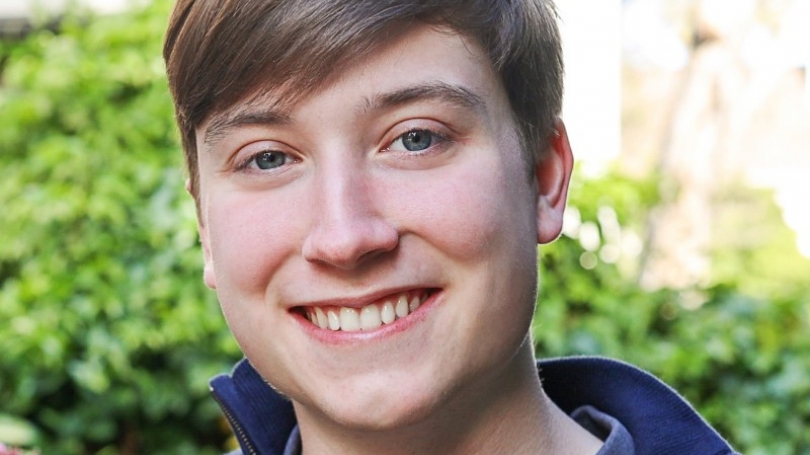
William Dickerman ’21
- About
- Education
- Research
- Engagement & Collaboration
- News & Events
Back to Top Nav
Back to Top Nav
Back to Top Nav
Back to Top Nav
William Dickerman '21
Hometown: Los Angeles, CA
Major: History modified with religion
For Will Dickerman, history is a story that explains why things are the way they are. "That definitely applies to energy," he says. "Understanding the past of energy helps us better prepare for the future. Energy, like history, is a story of different decisions and trends."
Fascination with the story of energy explains why Will, a history major who describes himself as "somebody who isn't the 'stereotypical energy person,'" has connected so deeply with the Dartmouth energy community during his time as a student here.
During his first term at Dartmouth, Will attended many out-of-class lectures, including one given by Institute Director Elizabeth Wilson, focused on the story and history of electricity in the US. "Hearing how the development of energy systems transformed the United States was fascinating." This burgeoning interest grew during his freshman winter, working on an Earth Sciences class project whose goal was to "solve global warming." His project group explored a range of possibilities including carbon capture and other theoretical and emerging technologies. "The prospect of using new forms of energy and technology to create a cleaner and more equitable future appeals greatly to me," he says.
These experiences inspired Will to learn more. "My sophomore fall I participated in the Irving Institute's Energy 101 series because I wanted to get an in-depth perspective on energy and how it impacts people and the world. I enjoyed it so much that I then participated in the FERC bootcamp. On the second day of the bootcamp we broke into groups and had a competition where we had to price energy in a way that we thought was best. I feel like I may have had an unfair advantage coming to that from Energy 101 because I used what I learned there and my group won the competition!"
Will also got involved with the Dartmouth Energy Alliance, the undergraduate student energy club, during his sophomore year, but because of travel and then the pandemic, he hasn't been on campus since then, making active involvement more challenging.
The pivot to remote operations during the pandemic did create another energy opportunity for Will, however. "Once COVID happened I was looking for ways to stay connected," he explains. "I saw an email from the Irving Institute recruiting students to be research assistants on a project analyzing the impact of COVID on regional transmission organizations (RTOs) led by Elizabeth Wilson. I focused my attention on CAISO (the organization that manages the California electric grid) — that was an inspiring research experience for me."
Will says the project taught him how to think out of the box to get information and how to "sift through volumes of documents, reports, and footnotes to find that one relevant nugget." And he got a crash course in collaborating with fellow student researchers to create effective data visualizations. "Coming up with a design, having it rejected, coming up with another design and having that rejected, and improving things until we arrived at something we all agreed worked...taught me a great deal about effective data visualization."
Most recently, Will took ENVS12: Energy and the Environment, with Elizabeth Wilson. For his final project in that course, his group developed a proposal to overcome the policy, regulatory, and community obstacles that have prevented the widespread implementation of offshore wind in the United States. "I was really shocked to find out how little offshore wind we have in this country." He recalls flying over the North Sea during a foreign study program in Scotland and seeing "more turbines in one remote area off the coast of Scotland than in the whole US." He says he valued the class for providing a big-picture look at the various aspects of energy, from technology, to economics, to policy.
For Will, that big-picture, interdisciplinary approach to energy is something he really appreciates about his time at Dartmouth. "One of the things I found really rewarding about the Irving Institute is that it really does connect with the whole liberal arts experience here… you can focus on so many aspects of energy. It's not just the technical challenges like making solar panels a little bit more efficient; instead, it's looking at issues and systems through a bigger lens. Making the right policy decisions or adjusting consumer behavior can really transform the world to make for a better, healthier future.